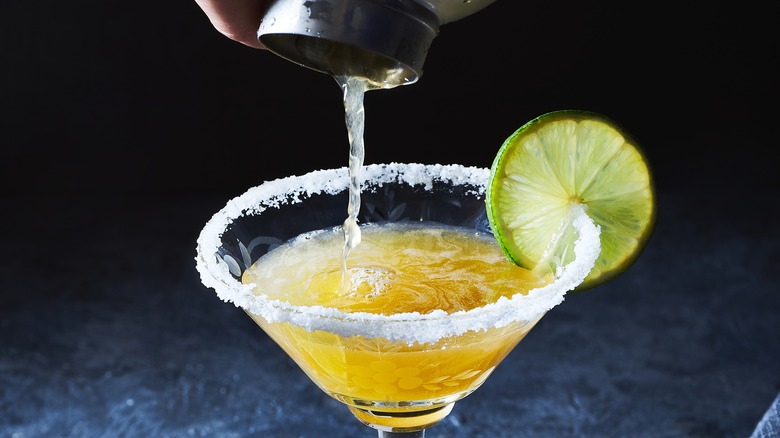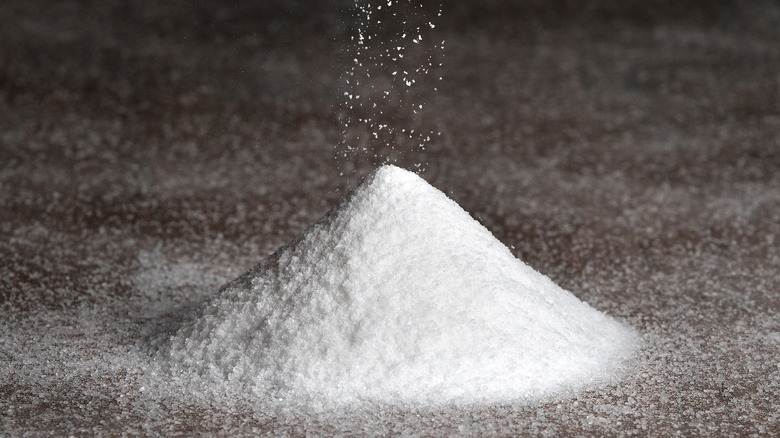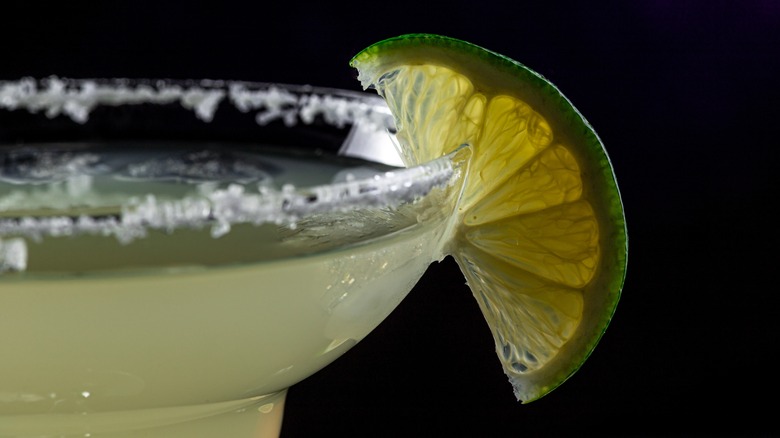The One Type Of Salt You Should Avoid For Your Margarita Rim
A classic margarita is America's favorite cocktail and for good reason. They're easy to make, can be prepared in advance, and are one of the most common drinks on any bar menu. Not to mention, they taste pretty great too.
Of course, no margarita would be complete without some salt around the glass' rim. Not only does this add to the general experience of enjoying a margarita, but it also compliments the drink's many citrusy components.
Not all salts are the same though, and if you're planning to be serving margaritas soon, you'll want to avoid using table salt. Southern Living points out that using common table salt for a salt rim is the wrong move every time. Not only does it have a unique flavor that might not appeal to everyone, but this finer salt grind can also get in the way of the drink's other flavors as well.
Table salt's flavor concerns
The salt that most consider common table salt is much more than just salt crystals. Table salt is combined with iodine and anti-caking agents for various reasons, though this may also affect its flavor.
Iodine was originally added to table salt in the early 20th century as a way to increase the amount of iodine in people's everyday nutrition. Iodine is a trace mineral that has several health benefits, including thyroid gland regulation and heart health. Cook's Illustrated says that adding this ingredient to everyday salt doesn't seem to affect its flavor. Taste testers were unable to tell the difference between sea salt and iodized salt in random taste tests.
Those anti-clumping agents might be a different story, though. They supposedly add a metallic flavor to common table salt that may be off-putting to some. It might not be strong enough to notice when used in a recipe, but when you're tasting the salt on the rim of a glass, it's more likely to stand out. The way that table salt is ground will also have an impact on its flavor.
How salt size affects flavor
Even if you use sea salt that is free from anti-clumping agents, its flavor might still be too much for your margarita. Using a fine ground salt can often taste overpowering when used on a margarita rim.
The reason for this is that the smaller salt particles dissolve far more quickly on the tongue than larger coarsely ground salts. These larger crystals will dissolve more slowly, and while they might have a longer-lasting saltiness, it won't be as sudden as smaller crystals. That's why more finely ground crystals aren't the best to use on margarita glasses.
Mixly recommends using kosher salt instead. It's typically free from the anti-caking agents that may spoil your salt's flavor, and are also a coarse grind. It's also known for having a more mild saltiness than other options and is sure to enhance your margarita without getting in its way. Those larger crystals will look more appealing when they're decorating your margarita's glass rim as well.


